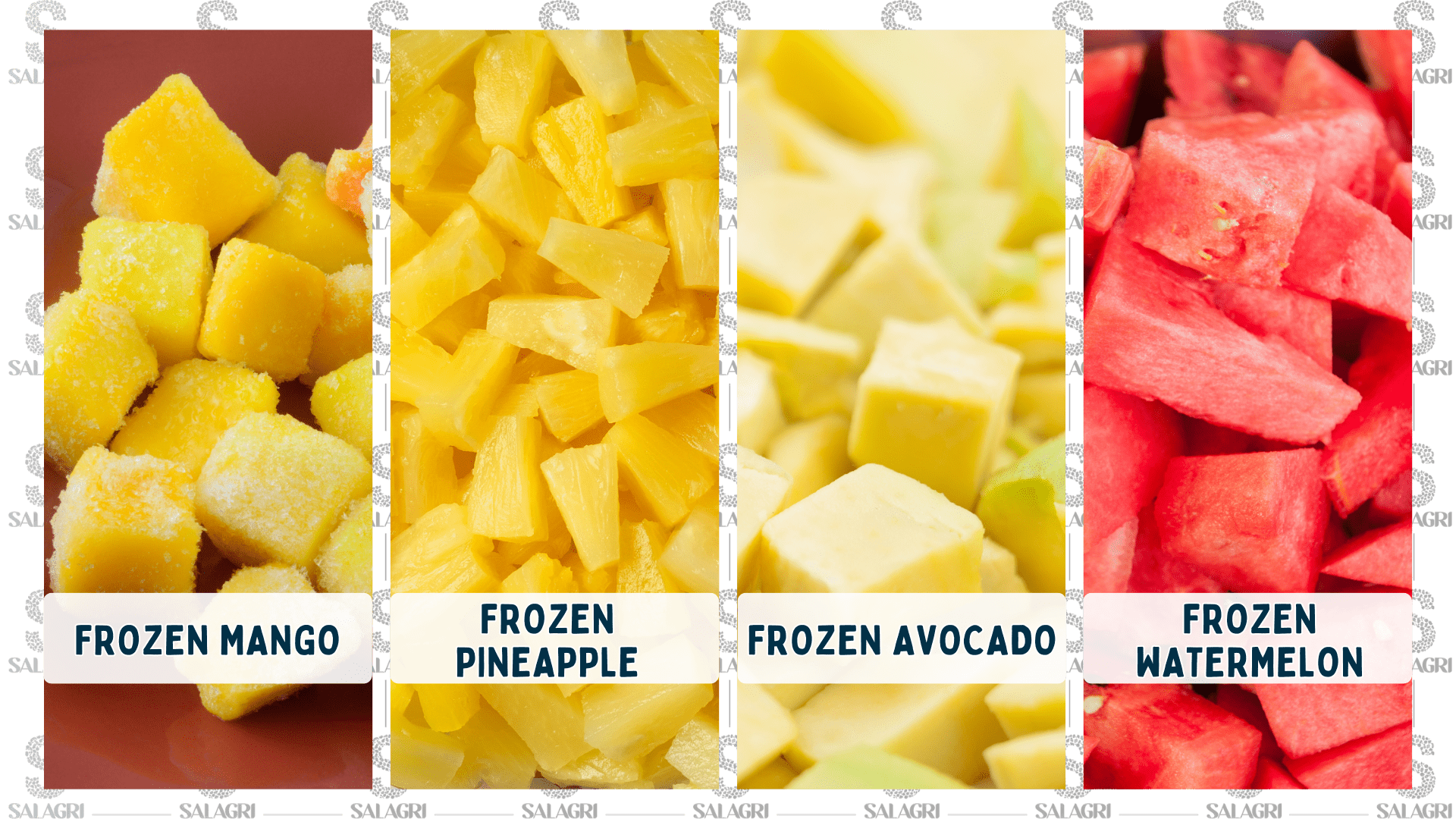

Looking for premium-quality frozen fruit and vegetables?
Before we explore Frozen Fruits (IQF), it’s essential to understand the term IQF, which stands for Individually Quick Frozen. This process involves freezing fruits and vegetables at extremely low temperatures, typically between -30°C and -40°C.
This freezing technique ensures that each piece of fruit and vegetable is frozen separately, preventing them from clumping together. By freezing at these low temperatures, the formation of large ice crystals is minimized, preserving the integrity of the cell walls in the produce.
Conventional freezing typically involves placing fruits and vegetables on trays or in containers to freeze them gradually. While this method is cost-effective and simple, it can lead to the formation of large ice crystals, which may compromise the color, flavor, and texture of the fruit or vegetable.
In contrast, Frozen Fruits (IQF) are produced through a rapid freezing process in a blast freezer. This quick freezing significantly reduces the formation of ice crystals, helping to retain the nutrients within the fruit. This technique is especially effective for producing smaller fruit products, such as chunks and slices.
Frozen Fruits (IQF) may also be referred to as flash freezing, quick freezing, super freezing, or cryogenic freezing. The terminology often varies based on the freezing method employed. Most suppliers of Frozen Fruits (IQF) favor mechanical freezing due to its lower energy consumption and reduced operating costs. For instance, ABC Fruits operates an automated freezing facility capable of producing 5 tons of Frozen Fruits (IQF).


Popular IQF Frozen Fruit
One of the most significant advantages of Frozen Fruits (IQF) is their ability to maintain the freshness, color, flavor, and nutritional content of the produce.
Food Service: Frozen Fruits (IQF) are extensively utilized in culinary applications, including frozen desserts, smoothies, and salads.
Restaurants and eateries rely on these fruits to ensure a consistent supply of fresh and delicious agricultural products that can be stored for extended periods.
Dairy Products: Frozen Fruits (IQF) are key ingredients in ice creams and yogurts, imparting a fresh and fruity flavor. They can be added whole or diced to these products, enhancing their taste and texture.
Processed Foods: Frozen Fruits (IQF) are featured in various processed foods, such as granola bars, breakfast cereals, and fruit snacks, providing them with a fresh flavor and appealing texture. Food companies often stock up on these fruits to ensure they have a steady supply for their production processes.
Nutritional Supplements: Frozen Fruits (IQF) are included in a range of dietary supplements, such as smoothies, shakes, and powders, serving as a convenient and concentrated source of vitamins, minerals, and antioxidants.
Retail and Supermarkets: Supermarkets offer a variety of frozen products to cater to consumers looking to preserve product quality over extended periods. These fruits provide an excellent option for shoppers seeking nutritious options without the risk of spoilage.
Busy Families: For families with hectic schedules who may not have time for daily grocery shopping, Frozen Fruits (IQF) present an easy-to-store and easy-to-use solution. These products allow for quick meal preparation and snacking without compromising on nutritional value.
Freeze-Dried Products: Frozen Fruits (IQF) can also be used as raw ingredients for freeze-dried goods. It’s essential to utilize freeze-dryers specifically designed for fruits, as these machines typically operate at lower drying temperatures to help prevent browning.
Viet Salagri, a leading supplier of frozen fruits (IQF), takes pride in its Frozen Products (IQF), which are thoughtfully packaged to meet export standards while ensuring user convenience. Our commitment to quality is reflected in our adherence to international certifications, including HALAL, BRC, FDA, FSSC, ISO, and HACCP. Here are the key specifications: